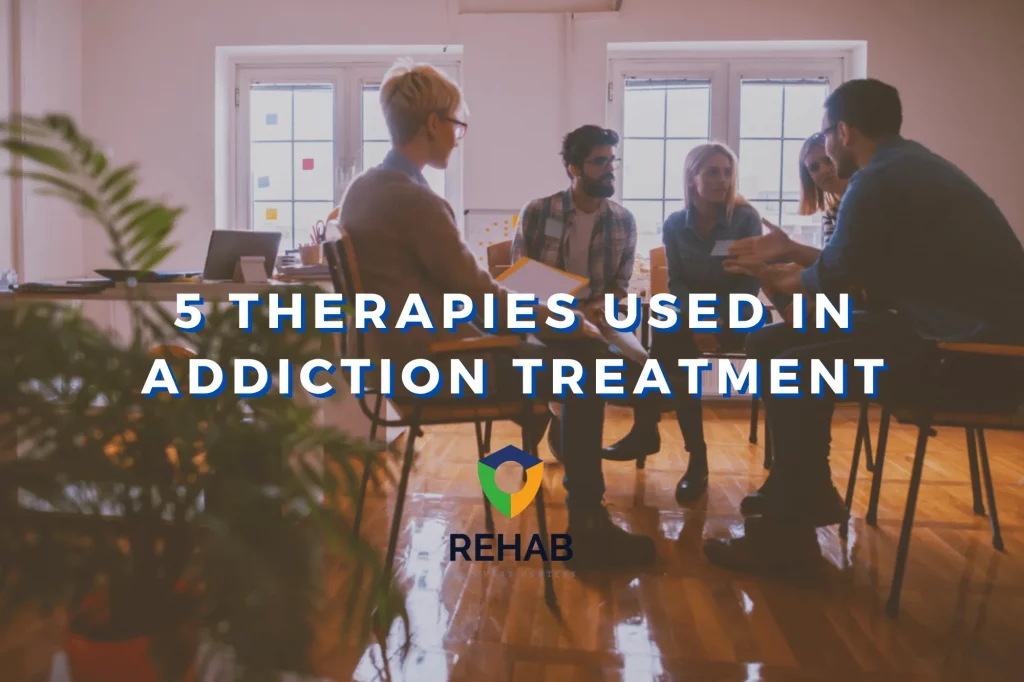Table of Contents
Did you know that 11.2% of the United States population uses illegal drugs once a month?
Drug overdoses are continuing to become a prevalent problem in the United States. More people are beginning to seek professional help for their drug addiction or dependency. If you’re somebody who is addicted to drugs or alcohol, you may be wondering what therapies used in addiction treatment programs are effective.
Today, we’ve created this complete guide to help you get a better understanding of available treatment options for you if you are addicted or dependent upon drugs or alcohol. Keep reading to learn more!
Why Should You Get Therapy If You’re Addicted to Drugs or Alcohol?
Drug and alcohol addiction treatment therapies don’t just help you to wean off of your drug a choice. Using behavioral therapy to help you manage your substance addiction will help you overcome the behavioral and mental reasons you abuse substances.
Behavioral therapy will provide you with incentives to encourage you to remain sober. Plus, behavioral therapy will also help you change your behavior and attitude towards yourself. You’ll also learn how to cope through challenging situations and desires to start using again.
You will also learn life skills in management to learn how to manage you are triggers and stress.
What Are the Available Therapies Used in Addiction Treatment?
Are you struggling with drug addiction? There are several different types of addiction treatment programs that you can enter into. Depending on whether you’re using other types of substances and what programs may be available in your area, the programs you are entering may vary.
Let’s take a closer look at the available therapies used in addiction treatment.
1. Cognitive Behavioral Therapy
Cognitive-behavioral therapy is one of the most commonly used types of therapies in addiction treatment. There is one main purpose of cognitive-behavioral therapy (also referred to as CBT). It is to help individuals suffering from addiction find connections between their feelings and their actions.
Through cognitive behavioral therapy, the individual will develop an understanding of how their thoughts and feelings. They’ll learn how these emotions impact their journey to recovery. This type of therapy is also commonly used to treat co-occurring disorders like:
- Obsessive-compulsive disorder
- Bipolar disorder
- Attention deficit disorder
- Eating disorders
- Post-traumatic stress disorder
- Anxiety
A therapist uses cognitive behavioral therapy and other therapeutic methods to help address any mental conditions that may play a part in your drug dependency.
2. Contingency Management
Contingency management therapy is another type of behavioral therapy. In this therapy method, a therapist will develop tangible rewards and incentives to encourage an individual to stop depending on a substance.
During this type of therapy, a therapist will develop a reward system when an individual makes positive lifestyle changes and is able to achieve goals that encourage recovery.
The purpose behind using this type of therapy to help treat drug addiction is to normalize the functions inside of the brain. This will allow an individual to discover healthier ways to experience pleasure inside of their brain, instead of depending on a substance to do this for them.
3. Rational Emotive Behavior Therapy
Rational emotive behavior therapy is commonly used in individuals who have a dual diagnosis. Do the process of rational emotive behavioral therapy, a therapist will work with an individual to challenge their negative self-talk and thought.
In this type of therapy, individuals will work to alter their thought patterns and behavior. Throughout the process of this therapy, the individual will begin to feel better by interrupting negative self-talk.
4. Motivational Interviewing
Individuals suffering from drug addiction but aren’t motivated to quit, motivational interviewing will be a therapy used as part of the recovery process. Even in situations where individuals are suffering financially, legally, socially, or with their health, they may not be motivated enough to begin working towards quitting their addiction.
Through motivational interviewing therapy, a therapist will work with an individual to overcome their fear of change. This therapy works by identifying how serious the substance abuse problem is. They’ll also work with an individual on the positive outcomes that can come from quitting their addiction.
5. Dialectical Behavior Therapy
Dialectical behavior therapy is a useful tool to use in individuals that are suffering from several mental illnesses, as well as substance addiction. By working to increase individuals’ coping abilities and self-confidence, dialectical behavior therapy helps an individual learn the necessary tools to handle stressful situations.
Individuals who have a mental illness are more likely to feel the need to have an emotional Outburst during stressful situations. Dialectical behavioral therapy encourages an individual to work through a situation. This will replace the desire to find ways to self medicate in an attempt to calm themselves down.
During a dialectical behavior therapy, a therapist and an individual will work to improve an individual’s self-image. They’ll also work on coping skills and communication skills. Plus, many therapists also help their patients to remove situations from their lives that cause them to feel a lack of confidence.
Understanding How to Overcome Your Addiction
By learning about the most commonly used therapies used in addiction treatment, you can work with a team of licensed professionals to identify the best therapy option for your unique needs. Overcoming your addiction is entirely possible, and we’ll be right therapy, you will be able to grow and thrive in your new sober life.
Are you looking for a drug or alcohol rehab center near you to enroll yourself in? We’re here to help you with any questions or concerns that you may have. Click here to learn what rehab locations are near you.
Get Help Today
Don’t go through the process of recovery alone. There are people who can help you with the struggle you’re facing. Get in touch with one today.


